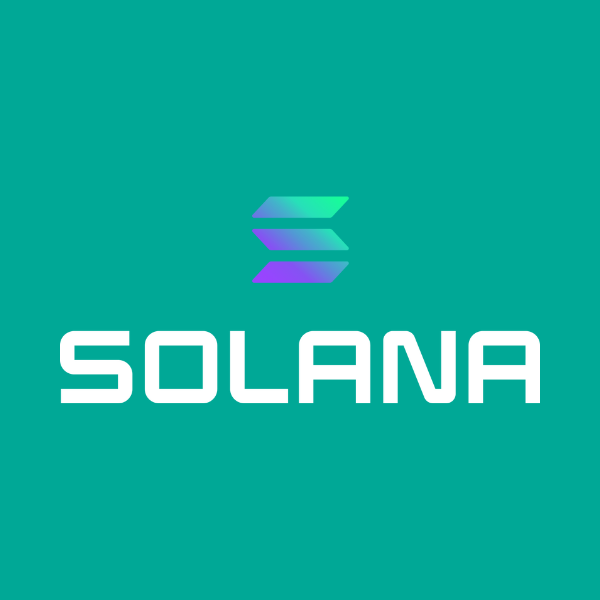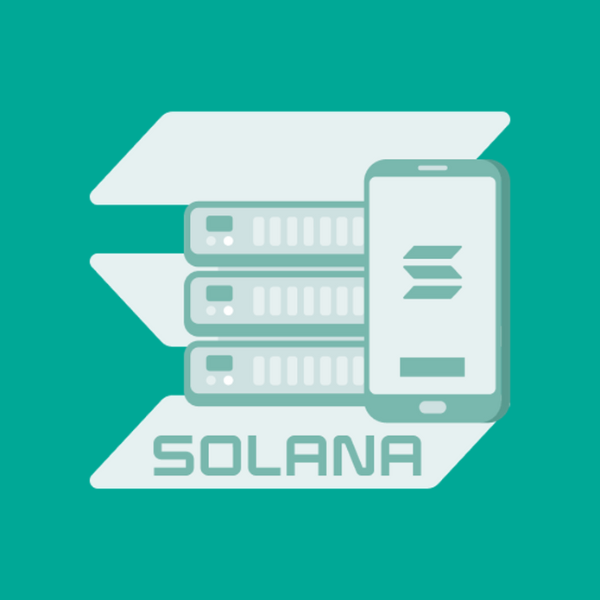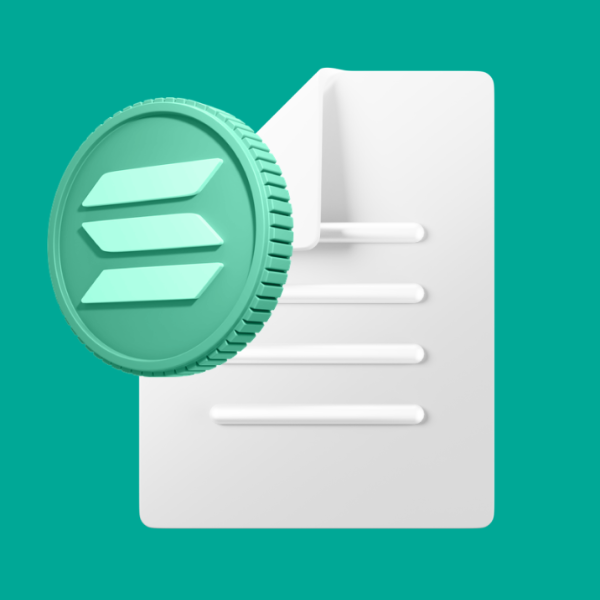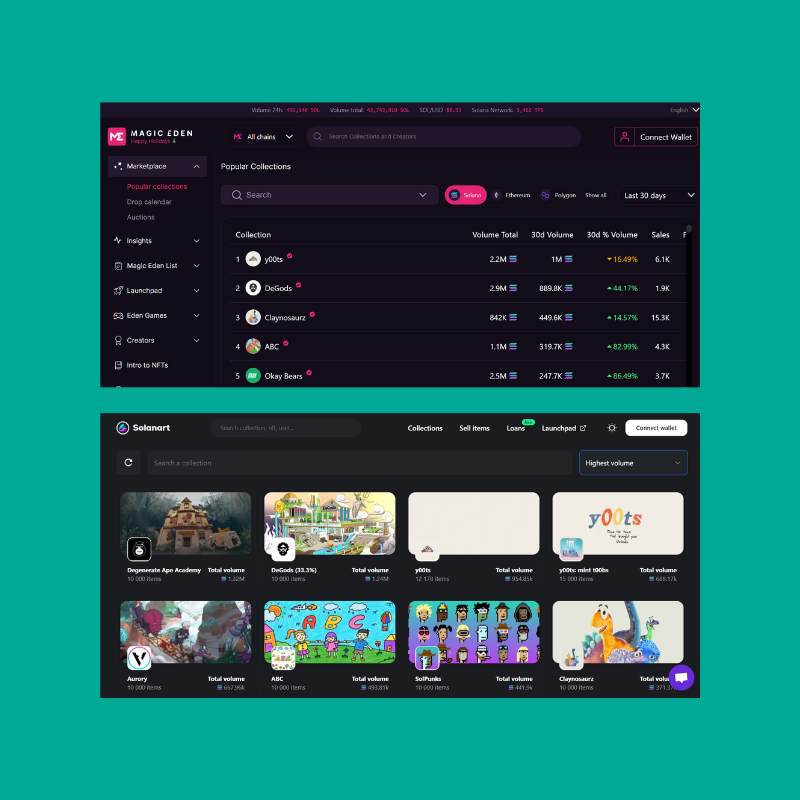Solana
Solana is a programmable blockchain with a focus on low transaction costs and high transaction throughput.

Background to Solana
Anatoly Yakovenko founded Solana in 2017 to offer a blockchain that could solve the problems of high transaction costs and long transaction times that other blockchains may experience.
In March 2020, Solana carried out an Initial Coin Offering (ICO) where each SOL was sold for 0.22 dollar.

How does Solana work?
Solana differs from other blockchains by processing transactions as they enter the network, instead of block by block. This core innovation underpinning Solana is the Proof-of-History (PoH) mechanism, which creates historical documents proving an event has occurred at a specific moment in time.
Rapid agreement between nodes
Unlike Ethereum, Solanas does not need nodes, to communicate and share a large amount of data with each other to determine whether a transaction is valid or not. Instead, each Solana node has its own clock. Using historical data and cryptographic clocks, Solana's nodes can agree on the chronological order of new transactions and events occuring on the blockchain. This happens without the nodes having to communicate with each other, which increases transaction speeds.
Speed over decentralization
Solana is not considered as decentralized as Ethereum since Solana is run by significantly fewer nodes. The reason is that Solana's high transaction throughput results in costly hardware requirements for validators of the blockchain, leading to fewer people having the possibility to participate.

Solana's cryptocurrency
SOL, Solana's native cryptocurrency is a cornerstone in the operations of running the blockchain.
SOL as fuel for Solana
Just like you use ETH to transact on Ethereum you use SOL to transact on the Solana blockchain. You thus need a small amount of SOL to use the blockchain.
SOL as security for Solana
SOL is used as financial security by allowing users to deposit SOL (staking) which contributes to secure the blockchain. In return, users receive newly issued SOL as a reward.
SOL as salary for validators
Users on Solana pay a fee in SOL to validators in exchange for the computational resources required when users want to transact.

How Solana is secured
Validators secure Solana
Solana uses so-called Solana clusters, which are a set of validators responsible for evaluating the validity of incoming transactions intended to be added to the blockchain.
In each Solana cluster there is a leader node (the leader changes approximately every two days), which suggests which transactions should be added to the blockchain and signs the proposed transactions with its signature. The other nodes within the cluster are validators, which validate if the proposed transactions are valid.
Validator on Solana
To become a validator on Solana, no set amount of SOL is needed, however, you need powerful (expensive) hardware and also SOL to be able to pay and vote for blocks on a daily basis.

Solana's consensus mechanism
Solana uses the consensus mechanism Proof-of-Stake (PoS) combined with Proof-of-History (PoH).
Proof-of-History
With PoH, a historical record is created that proves that an event has occurred at a specific moment. While many other blockchains require nodes to communicate with each other to agree that time has passed, each Solana node has its own clock that proves when in time events have occurred.
Rapid validation of new blocks
The combination of PoS and PoH means that validators need less time to validate the order of transactions, which means the network can quickly choose a new validator for each new block before it is added to the blockchain.
High transaction speeds
By having a feature that eliminates the need for nodes to agree on time, Solana's validators have less to process in each block, increasing transaction speed and throughput on Solana.

NFT marketplaces at Solana
Since Solana announced support for NFTs in May 2021, Solana's NFT ecosystem has emerged. Let's take a closer look at two popular NFT marketplaces at Solana.
Magic Eden
Magic Eden is the largest and most popular NFT marketplace on Solana with a focus on pfp and gaming NFTs where popular NFT collections like DeGods (which, however, announced they will bridge to Ethereum) and Okay Bears has been launched. Creators who want to launch an NFT collection on Magic Eden apply and, if approved, Magic Eden then offers assistance in creating, marketing and launching the NFT collection.
- Payment methods: SOL, ETH, credit card
- Fee on initial sale: 2.0% paid by the buyer
- Fee on secondary sales: 2.0% paid by the seller
- Royalties: Optional for the user
Solanart
Solanart offers users to buy, sell and create NFTs. Like Magic Eden, creators apply to launch NFT collections on the platform. On Solanart you will find most of the NFTs that exist on the Solana blockchain.
- Payment methods: SOL
- Fee on initial sale: 0%
- Fee on secondary sales: 0%
- Royalties: Varying depending on the creator

Solana's properties
speed
Solana can process hundreds to thousands of transactions per second.
low transaction cost
Solana offers transaction fees that rarely exceed 0.01 dollars per transaction.
high transaction throughput
With a mechanism that allows validators of new blocks to be quickly selected, a high transaction throughput is enabled.

